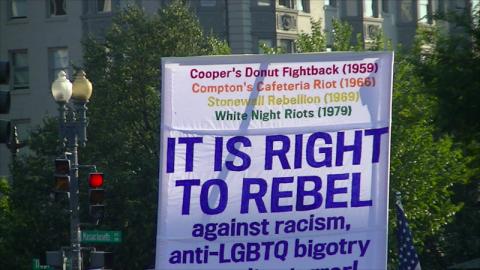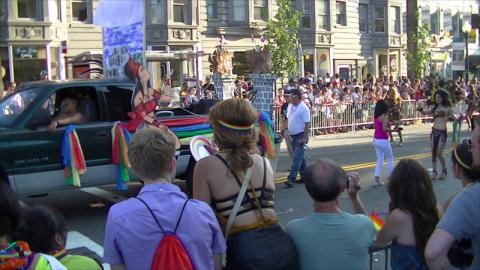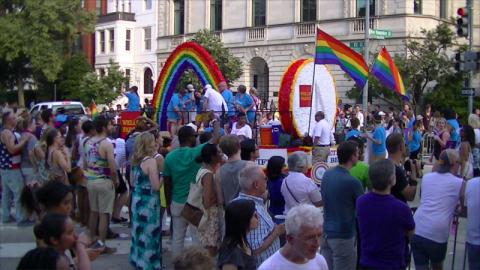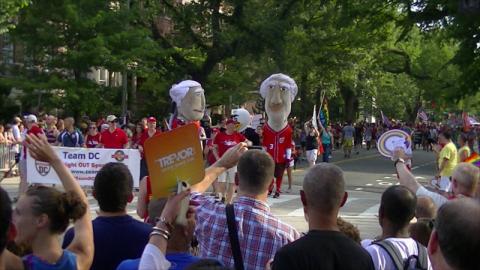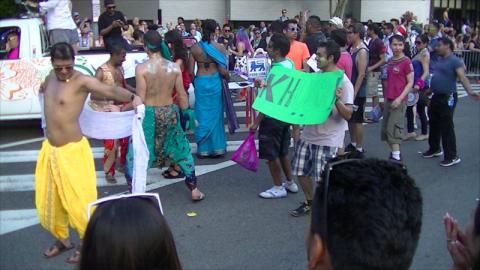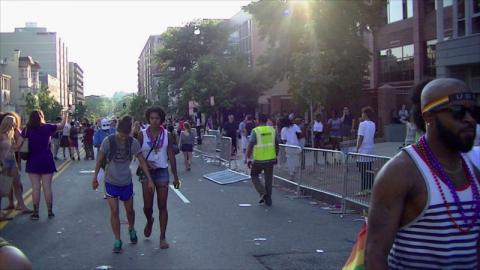Corporate/assimilationist contingents at Pride clash with message of Stonewall
Capitol Pride 2015 started out with well over a hour of corporate and assimilationist floats. The first mention of Stonewall came about 15 minutes from the end of the parade, courtesy of the Party for Socialism and Liberation. Certainly the Wells Fargo contingent, whose sponsor invests in private prisons, was not about to mention Stonewall. That is especially true now that people from Ferguson to Baltimore to Texas are once again fighting the police.
![]() Video contrasting traditional contingents and message of Stonewall with corporate contingents
Video contrasting traditional contingents and message of Stonewall with corporate contingents
![]() Related Video: Fundamentalist Christians jeered for threatening Pride festival with Hell
Related Video: Fundamentalist Christians jeered for threatening Pride festival with Hell
Two years ago, the Citibank and Wells Fargo contingents were forcibly halted by the "Booty Bucanners" who stormed onto the route in the name of reclaiming Pride. Despite that strong message of community disapproval, both were back last year and again this year. Just as offensive was the presence of a Gay Washington Nationals fan group. The Nationals stadium was built with about 3/4 billion dollars in taxpayer funds on land taken by eminent domain. An entire Gay neighborhood was bulldozed for this team, yet their fans are invited to march in Pride.
For those who arrived late or stuck it out long enough, the traditional Pride contingents, including the PSL's Stonewall banners, were in the last half, maybe the last third of the parade. This could almost have been two different parades, with the assimilationists in front and the GLBTQ community's traditions riding the back of the bus. When the last contingent passed, the crowd pulled down the barricades and marched behind the parade. This has become a tradition of its own, remembering the days when Pride was a First Amendment activity that needed no corporate sponsors.
One sour note from last year was nowhere to be seen, at least I did not see them. In 2014 Westboro Baptist had the nerve to counterprotest Pride, only to be driven down the route by a crowd of booing bystanders. This year they seem to have stayed away, perhaps having learned the lesson Wells Fargo did not in 2013.


